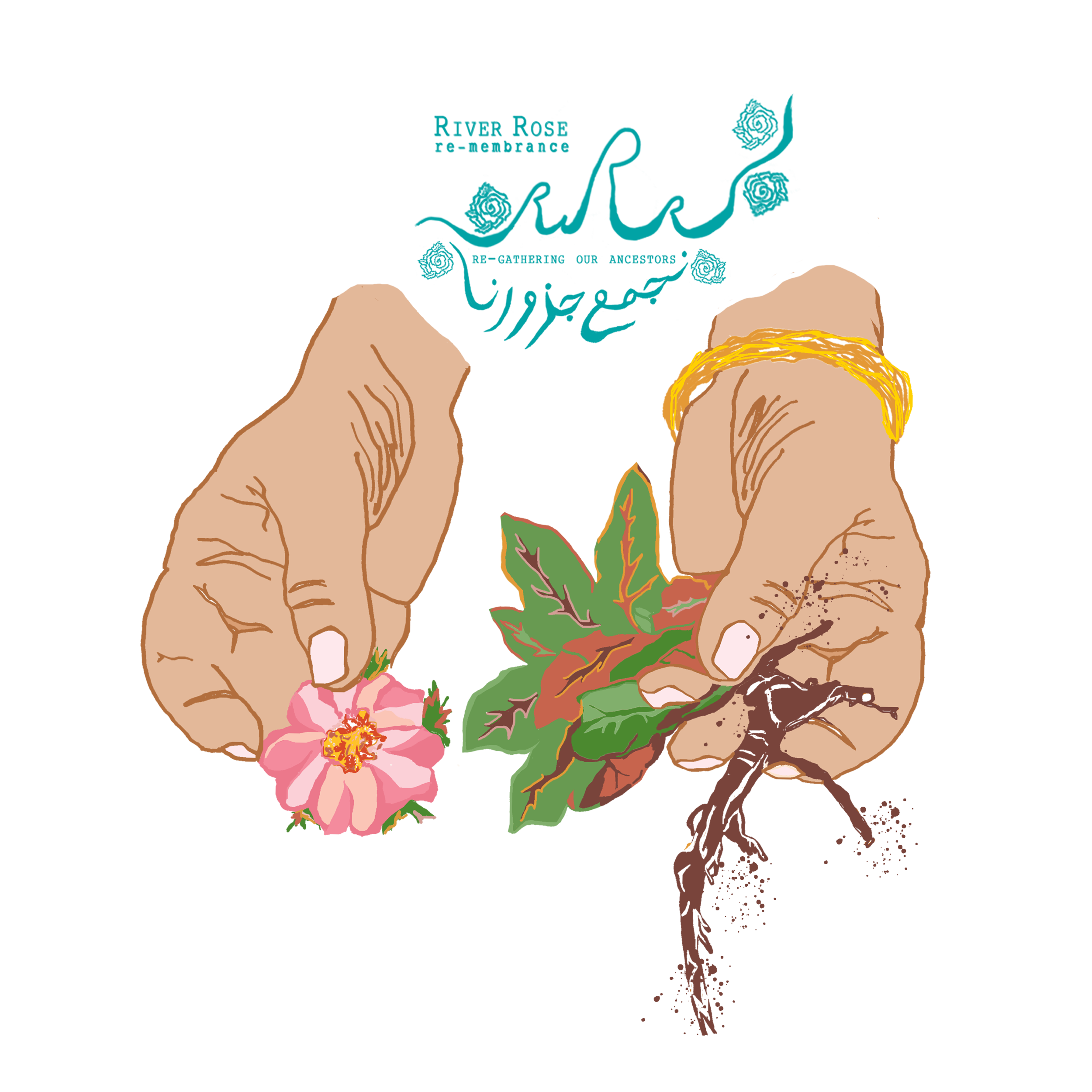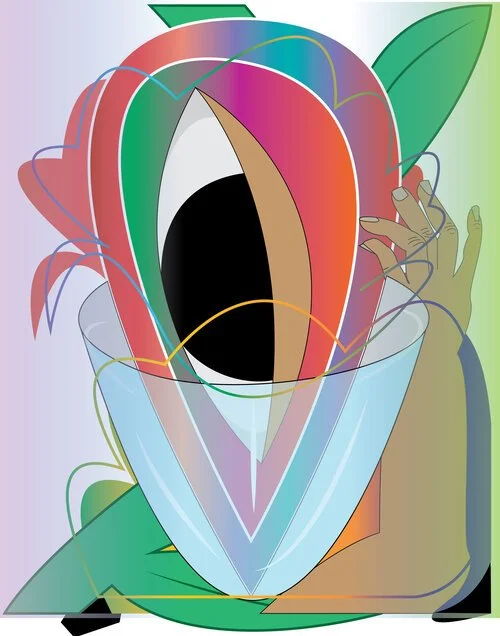Esfand: Warding off the White Gaze
Esfand: Warding off the White Gaze By Tala Khanmalek
esfand o esfand dooneesfand 33 doonebetarake cheshme bakhil, hasood, o bigane
-song for esfand
Latin name: Peganum Harmala
Arabic: Harmal, Harmel
English: Syrian Rue, Wild Rue, African Rue
*note: this plant is not related to common Rue, the Herb of Grace, aka. Ruta Graveolens, though they share some similarities*
Crystal Cup
Among esfand’s wide range of magico-medicinal properties, warding off the evil eye is probably the most popular. My grandmas always murmur a prayer while circling a handful of esfand mixed with cardamom pods around our heads, taping each shoulder and behinds before burning the seeds. The seeds explode like firecrackers, releasing a thick and distinctly fragrant smoke throughout the house. As they waft the smoke towards my face, my grandmas encourage me to breath it in for the smoke must touch the person that it’s summoned to protect. Similar to sage, esfand can also be used to smudge any given space of negative energy.
The concept of chesm khordan, literally “struck by the eye,” is about much more than being the victim of a curse. Growing up, I remember the most common cause for burning esfand was receiving a compliment. Compliments, no matter what the intention, could jinx you. While I completely believe in the evil eye, I’ve noticed that the emphasis on warding it off has produced an adverse effect on me. As author of My Persian Kitchen Sanam Lamborn describes in her post about esfand, she panics when complimented on her appearance for fear of being (un)intentionally jinxed. I too often panic and like Lamborn, feel torn between warding and receiving. My uneasiness though, arises from something deeper: how herbal remedies, including burning esfand, are sometimes used to uphold colonial standards of beauty.
H and Eye
Hairy
For me, a queer femme of color, unsolicited compliments can be harmful. Unlike consensual affirmations, compliments run the risk of reproducing what my queer femme of color identity seeks to radically reclaim. Burning esfand raises awareness about the fact that compliments are speech acts and all actions have consequences. At the same time, depending on why its used, burning esfand has the potential to perpetuate a sense of modesty that easily slips into shaming the diverse fabulousness within the queer femme of color community. In other words, compliments aren’t neutral or always good. How we’re taught to give and receive compliments is raced, classed, gendered, sexualized, and ableist. Furthermore, the role of compliments in constructing race, class, gender, sexuality, and ableism is an equally problematic issue.
If the evil eye is partial to oppressive norms, then burning esfand is just another vehicle for structures of violence like transphobia, fatphobia, and heteronormative cispatriarchy. So, I propose using esfand to ward off the white gaze instead. This ancient ritual provides a form of protection that, I believe, can continue serving the purposes of healing justice in the face of multiple oppressions. Blogger Roya Azal suggests that we burn esfand for mental distress. Yes! And if we extend the factors of mental distress to include white supremacy, esfand becomes the perfect plantcestor for surviving the white gaze.
A Simple Ritual for Warding Off the White Gaze with Esfand:
Check-in with yourself/selves. How are you feeling? A lot of times I cry at this moment. Allow for anything that surfaces to surface organically.
Are you comfortable? Do you have an altar or another sacred, accessible place you like to go? Consider going there for the ritual. More often than not, I’m in pain because I have a chronic illness and need to change my clothes, lie down, etc.
Take a few deep breaths, maybe drink some water. I also like to offer some water to my altar.-Mix a small handful of esfand with any other ingredients that feel right to you. I’ve been really into gold glitter lately and added some to my personal blend of esfand. If you don’t have any at home, you can buy esfand at your local SWANA grocery where 4 oz. bags sell for under $5.
Communicate with the esfand. Tell it about how you’re feeling, the microaggressions you experienced today, everything that was triggering. My intergenerational trauma usually comes up so I talk about that too. I like to call on my great grandma, Louise, for support.
Ask the esfand for protection and whatever else you need. I usually invoke my ancestors and spirit guides too.
You can burn the esfand in a stovetop safe pot (my family uses a small metal container) on low-medium heat. Lamborn has instructions for burning esfand in a piece of aluminum foil. If the smoke is an irritant, you don’t have to burn it. You might light a fragrance free candle instead.
Do whatever feels right while the esfand burns. I like to close my eyes and say, “I release you.” Mvskoke poet Joy Harjo has a beautiful poem, “I Give You Back,” with this phrase in it.
Affirm yourself/selves. Affirm your survival! I enjoy reading a list of affirmations that I printed out and keep in my journal. I also love this piece, “The Shape of My Impact,” by Alexis Pauline Gumbs on the importance of acknowledging survival, particularly for Black feminists.
Give the esfand back to nature (compost it, bury it, give it to a neighborhood tree versus trash).
*The artwork featured in this blog post is by Paradise Khanmalek, which you can purchase at their Society6 shop





